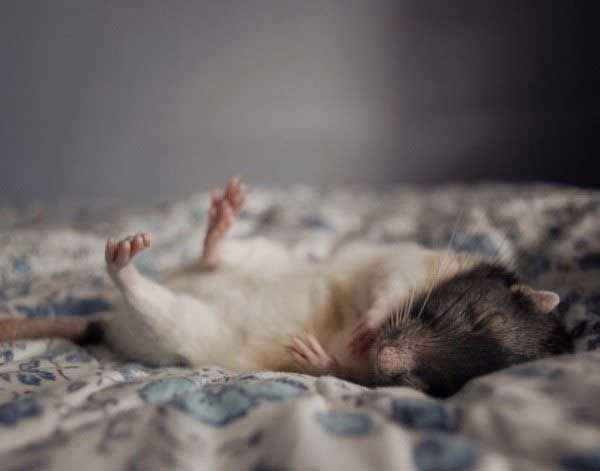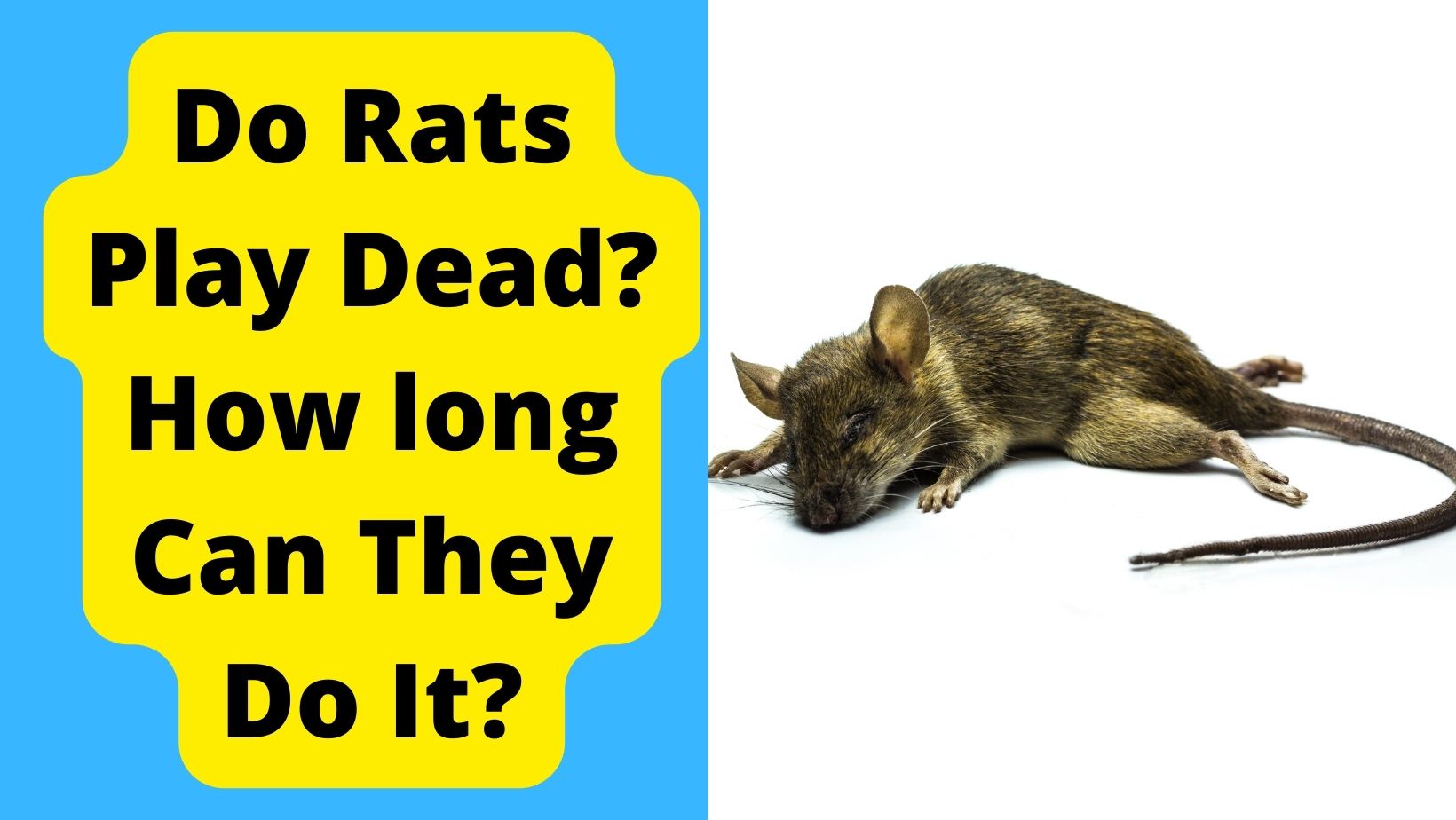In the wild, the predators of rats are many, including large birds, such as owls, crows, eagles, snakes, and cats. These are similar predators of the related opossum, famous for slumping over and “playing dead” to discourage any larger animal from killing and eating them.
So, do rats play dead? Yes! “Playing dead,” also known as tonic immobility, is used by various animals, including reptiles, sharks, and rodents like mice and rats, as a fear response or due to pressure on a particular part of their body. It is also referred to as “feigning death.”
Read on to learn why pet rats play dead, how tonic immobility works, how to tell if your baby rat is playing dead (and what to do), plus more.
Do Rats Play Dead? When Do Rats enter Immobility?
Rats will enter a state of reflexive freezing or “apparent death” on two occasions:
Dorsal Immobility
The first is when the scruff of their necks picks up rats. Because mother mice and rat move their young ones this way, going limp is young reflex rats carry into adulthood.
Do baby rats play dead?
A limp baby rat is easier for the mother rat to transport in times of threat than a squirming one, which may explain why the reflex exists. This is known as “dorsal immobility.”
ALSO READ: Sneezing Rats Home Remedies
Now, to answer your second question – Do Pet rats play dead?
Because this reflex can still be found in adult rats, picking them up by pinching the nape of the neck will trigger limpness. But, this can make a rat feel both fearful and helpless.
What is the best way to handle a pet rat?
The best method of handling your pet rat is to hold them by their midsection and under their lower half. Ensure you never dangle them from their tail or limb. This way, the rate is supported and secure.
Tonic Immobility
The other rat immobility types are tonic Immobility, which is when pressure is applied to a rat’s upper back, typically while lying belly up on the ground, which leads to the same type of “playing dead” or “freezing” reaction.
This “freeze” is similar to the “flight” or “fight” reflex, which is an animal’s or human reaction to danger. Depending on the circumstances, the animal will either take flight or fight the animal or hold entirely still.
Tonic immobility is a reaction to fear, possibly developed to make predators think the animal is dead. Animals do not consciously work this out themselves; instead, a combination of adrenaline and position freezes the animal in place.
Scientists have found that a combination of pressure on the rat’s back and position will put the rat into a trance. The more complex the pressure on the rat’s neck or upper back, the longer the spell lasts. But, the length of the trance will also range from rat to rat.
Plus, the more submissive or fearful the rat is, the longer the rat will be frozen.
Rats can also trigger each other tonic immobility. For example, a more aggressive rat will roll a submissive rat onto its back, which can effectively freeze the rat.
Another study shows that the hypnotized state of the rats meant that their tone and muscle mobility were suppressed, making them immobile until the trance was over. The rat’s breathing may also become shallower, while eyes typically stay open and alert.
Note: It is crucial that this type of “feigning death” is not the same as when opossums play dead. In their defense, a possum is directly trying to dissuade predators from eating them. In the case of rats, tonic Immobility can be induced simply by a combination of adrenaline and light pressure or with pressure on the neck area.

Can Wild rats Play Dead?
Yeah! Wild rats will play dead to dissuade predators from feeding on them.
Can Pack rats play Dead?
Absolutely. A combination of pressure on the rat’s back and position will put it into a trance or “make it play dead.”
How Long Do Rats Play Dead for?
Well, it depends. Anywhere from 5- 30 minutes. However, the more fearful or submissive a rat is, the longer the trance period.
How to Tell if Your Rat Is “Playing Dead”
To confirm if your rat is playing dead or it is, use this step-by-step process:
- If you see your rat unmoving in its cage, check if it rises and falls. This would signal that the rat is breathing and its heart is beating. In most cases, when they enter this state, their eyes will remain open.
- Rats will not respond to touch while “playing dead,” so don’t poke or try to shake your rat. Instead, wait until they move. Then, if needed, gently push the rat into a dark, sheltered place to lower your rat’s fearfulness and make it quit its trance ASAP.
- Check to see if anything has startled your rat. Since a rodent’s “hypnosis” is often correlated to fear of danger, ensure there’s nothing in the area (a bird at the window, a larger pet, etc.) that could be causing a fearful reaction that helps to induce the frozen state.
- Lastly, wait it out. A rat will usually come out of a tonic immobility trance after a couple of minutes. So be patient, and watch for movement of the limbs that signals the end of their “hypnosis.”
If, after 30 minutes or so, your rats are still not moving, take them to see your vet and get them checked, provided they’re still alive.
So, do rats play dead – Our answer is Yes! I laughed hard the first time I witnessed it at a friend’s place.




